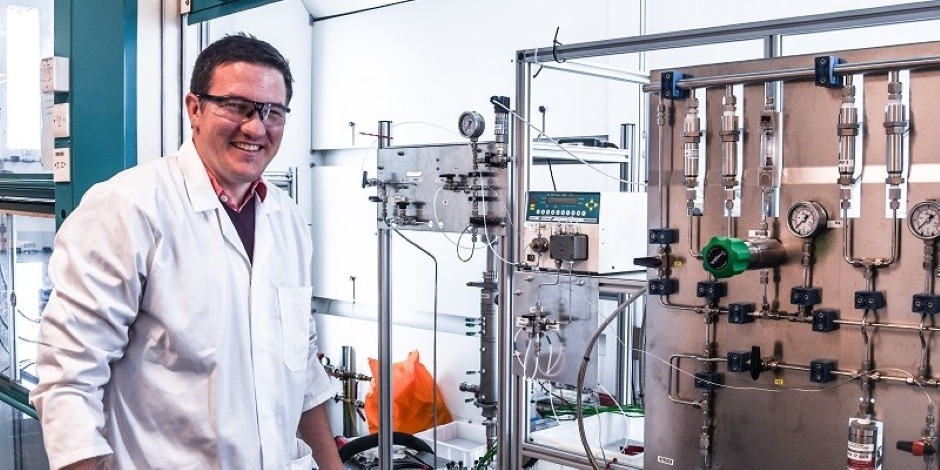hidden
Over 10 years experience of Traceability Solutions

By pharmatrax
Category: Technoloy
 No Comments
No Comments
AI lab-bot enrolled in drug discovery programme
The identification and synthesis of molecules for new medicines could soon be undertaken in a lab where decisions are made by artificial intelligence, an advance likely to speed up drug discovery.
It can take years for scientists to refine the shape and property of target molecules, and up to a million molecules might have to be tested before the right one is discovered.
Now, Dr Richard Bourne, Associate Professor in the School of Chemical and Process Engineering at Leeds University, is leading a project to develop an AI-driven ‘lab-bot’ to refine the process. According to Dr Bourne, the initial aim of the project is to find medicinally-active chemicals that can be used to treat arthritis and cancer.
Investment in artificial intelligence aims to boost diagnosis of heart disease
Vital signs: project aims to bring artificial intelligence into healthcare
To this end, Dr Bourne has been awarded a Senior Research Fellowship by the Royal Academy of Engineering to further the investigation, which adds to a £3.5m EPSRC grant awarded to Dr Bourne and partners to make advances in ‘cognitive chemical manufacturing’.
“Discovery chemists are involved in a ceaseless challenge to synthesise new drug molecules to the point where they can be successfully tested for medical activity,” he said. “But the process of reaching that point can be very slow, and that has consequences for people who are waiting for new drugs that could help alleviate painful and chronic conditions.
Dr Bourne added that if the process is rushed then new treatments may not be developed and new types of molecule will not be evaluated.
“Our research at Leeds is about finding a balanced approach, so new molecules are found that are safe and reliable but are discovered in a timely manner,” he said. “We believe by harnessing artificial intelligence we can achieve that accelerated approach.”
Dr Bourne is one of three new Senior Research Fellows announced by the RAEng and his team is collaborating with pharmaceutical companies including AstraZeneca, Pfizer and GSK.
According to Leeds University, modern drug discovery involves synthesising compounds that can act on diseases at a molecular level, perhaps by blocking proteins that are harmful.
In a suite of laboratories, Dr Bourne and his colleagues are optimising the drug discovery process by bringing together machine learning, automation and an idea dubbed continuous flow chemistry. The result is a robot-controlled system that can autonomously change the parameters of a reaction until the optimal or best results are achieved.
In flow chemistry, reactions take place in narrow pipes rather than a traditional laboratory flask or reactor. In the system at Leeds, the reaction is contained in pipes that are smaller than a millimetre in diameter, which provides greater control of the reactants.
An artificial intelligence system continuously monitors the outcome of the reactions, compares the results from other experiments held in an online database and then alters the parameters – such as temperature or pressure – until the optimal result is achieved. The approach could be scaled up and run by ‘production robots’ for manufacture.
‘Lab-bots’ have been used at Leeds in recent years to optimise the synthesis of a cancer drug called Osimertinib, which was developed by AstraZeneca. The robotic laboratory was able to identify the optimum manufacturing process after a run time of 26 hours. In comparison, the conventional approach would have taken scientists around two weeks of intense laboratory experimentation.
Source:https://www.theengineer.co.uk/ai-lab-bot-drug-discovery-leeds/



